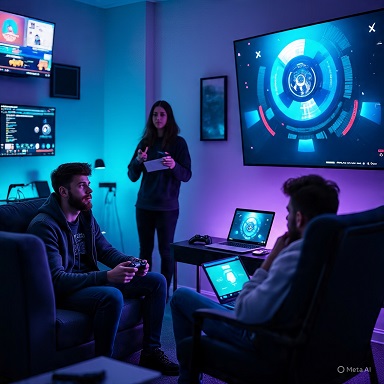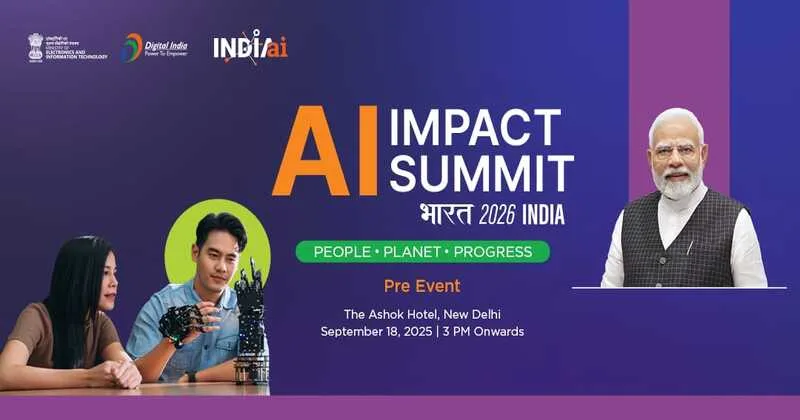Stories you may like
Researcher
A researcher is trained to conduct systematic and scientific investigations in a particular field of study. Researchers use a variety of techniques to collect and analyze data to answer research questions or test hypotheses. They are responsible for designing studies, collecting data, analyzing data, and interpreting the results. Researchers may work in a wide range of fields, including science, medicine, engineering, social sciences, humanities, and many others.
To become a researcher, individuals usually need to obtain a graduate degree in their chosen field of study. They may also need to gain experience working as an assistant or intern in a research setting before becoming a full-fledged researcher. Researchers may work in academic or industrial settings, or they may work independently as consultants or freelance researchers. Regardless of the setting, researchers play a vital role in advancing knowledge and finding solutions to real-world problems.
Researchers are essential to the advancement of knowledge in various fields, including science, technology, medicine, social sciences, and humanities. Their work involves conducting systematic investigations to gather data, analyze it, and draw meaningful conclusions. Through their research, they can identify new problems and challenges, develop innovative solutions, and test hypotheses to validate theories.
Researchers also play a critical role in improving existing practices and policies, identifying gaps in knowledge, and creating new avenues for future research. They provide valuable insights and information that can inform decision-making, shape public opinion, and drive progress in society.
Duties and Responsibilities
The duties and responsibilities of researchers can vary depending on the field of study and the type of research being conducted. However, here are some common duties and responsibilities that researchers are typically expected to fulfill:
- Develop research proposals: Developing a research proposal typically involves identifying a research question or problem, reviewing the relevant literature, selecting appropriate research methods and techniques, and outlining the expected outcomes of the research. Researchers must also ensure that their proposal aligns with the funding agency's objectives and guidelines.
- Conduct literature reviews: Literature reviews involve searching for and reviewing existing research papers, articles, books, and other relevant publications to identify gaps in knowledge and to build upon previous research. Researchers must ensure that they are using credible and reliable sources of information and that their review is comprehensive.
- Collect and analyze data: Collecting and analyzing data is a key aspect of research. This may involve designing and conducting experiments, surveys, interviews, or observations. Researchers must ensure that their data collection methods are valid and reliable, and that their analysis is appropriate and accurate.
- Ensure ethical considerations: Research ethics involve ensuring that the research is conducted in a manner that protects the rights, welfare, and dignity of all participants, as well as the environment. Researchers must obtain informed consent from human participants, ensure that animal research is conducted ethically and humanely, and comply with relevant regulations and guidelines.
- Communicate research findings: Researchers must communicate their research findings clearly and effectively to a range of audiences, including academic peers, policymakers, and the general public. This may involve writing research papers, presenting at conferences, and producing reports or other materials.
- Manage research projects: Managing a research project involves planning, organizing, and coordinating resources, timelines, and budgets to ensure that the project is completed on time and within budget. Researchers must ensure that they have the necessary resources, such as funding, personnel, and equipment, and that they are managing these resources effectively.
- Collaborate with others: Collaboration is an important aspect of research, and researchers often work with other researchers, academic institutions, funding agencies, and industry partners to achieve research objectives. Collaboration can help to facilitate the sharing of resources, expertise, and knowledge.
- Stay up-to-date with developments in their field: Research is an evolving field, and researchers must stay up-to-date with the latest developments and trends in their field to ensure that their research remains relevant and impactful. This may involve attending conferences, workshops, and seminars, reading academic journals and other publications, and participating in professional development opportunities.
Workplace of a Researcher
The workplace of a researcher can vary greatly depending on the field and area of study. Researchers can work in a variety of settings, including academic institutions, government agencies, non-profit organizations, and private companies.
In academic settings, researchers often work in universities or research institutions, conducting experiments and analyzing data to develop new theories and insights into various fields of study. They may also teach courses and mentor students in their area of expertise.
In government agencies, researchers may work on projects related to public policy, health, and safety. They may be responsible for conducting research to support the development of new regulations or programs, analyzing data to assess the effectiveness of existing policies, or providing expertise on specific issues.
Non-profit organizations often employ researchers to study social and environmental issues, such as poverty, climate change, and human rights. These researchers may conduct surveys and collect data to understand the impact of various programs and initiatives, and use this information to advocate for policy changes or other interventions.
Private companies also employ researchers, particularly in industries such as technology and healthcare. These researchers may be responsible for developing new products, improving existing technologies, or conducting market research to understand consumer preferences and behaviors.
Regardless of the setting, researchers typically spend a significant amount of time conducting research, analyzing data, and communicating their findings through presentations, reports, and publications. They may also collaborate with other researchers or professionals in their field, attend conferences and workshops, and stay up-to-date with the latest research and developments in their area of expertise.
How to become a Researcher
Becoming a researcher typically requires a combination of education, training, and experience. Here is a detailed guide on how to become a researcher:
- Choose a field: The first step in becoming a researcher is to choose a field of study. This can include areas such as science, social sciences, humanities, or business.
- Get a Bachelor's Degree: Most researchers have at least a bachelor's degree in their chosen field. During undergraduate studies, students should focus on taking courses that align with their research interests and develop skills such as critical thinking, data analysis, and research methods.
- Pursue Graduate Studies: A graduate degree is often required to become a researcher. Depending on the field, a master's degree or Ph.D. may be necessary. Graduate programs typically involve coursework, research, and the development of a thesis or dissertation.
- Gain Research Experience: Research experience is critical in becoming a researcher. Students can gain experience by working as research assistants, participating in internships, or volunteering in research projects. This can provide valuable hands-on experience and help build a professional network.
- Develop Research Skills: Researchers need a wide range of skills, including critical thinking, data analysis, and communication skills. It is important to develop these skills by taking courses, attending workshops, and participating in research projects.
- Build a Professional Network: Networking is crucial in the field of research. Attend conferences, seminars, and other events to meet other researchers and build relationships. This can also help with finding research opportunities.
- Apply for Research Jobs: Once the necessary education and experience have been gained, it is time to start applying for research jobs. Look for positions in academic institutions, government agencies, non-profit organizations, and private companies.
- Publish Research: Publishing research is an important part of being a researcher. This involves writing up research findings and submitting them to academic journals or presenting them at conferences.
- Continue Professional Development: Researchers must keep up with the latest developments in their field. This involves continuing education, attending conferences, and networking with other professionals.
Associations
There are many associations and organizations for researchers that offer networking opportunities, professional development resources, and other benefits. Here are just a few examples of associations for researchers:
- American Association for the Advancement of Science (AAAS): The AAAS is the world's largest multidisciplinary scientific society, with a mission to advance science and serve society through initiatives in science policy, education, and public engagement. The organization offers a range of resources and benefits for researchers, including access to scientific journals, career development resources, and networking opportunities.
- Association for Computing Machinery (ACM): The ACM is a professional organization for computer scientists and researchers. The organization offers conferences, publications, and other resources to support research in the field of computing.
- American Psychological Association (APA): The APA is a professional organization for psychologists and researchers in psychology. The organization offers publications, conferences, and other resources to support research in the field.
- Society for Neuroscience (SfN): The SfN is a professional organization for researchers in neuroscience. The organization offers conferences, publications, and other resources to support research in the field.
- Association for Research in Vision and Ophthalmology (ARVO): The ARVO is a professional organization for researchers in vision and ophthalmology. The organization offers conferences, publications, and other resources to support research in the field.
- Society for Industrial and Organizational Psychology (SIOP): The SIOP is a professional organization for researchers in industrial and organizational psychology. The organization offers conferences, publications, and other resources to support research in the field.
Online Resources
There are many online resources available for researchers that can help them stay up-to-date with the latest research, find funding opportunities, collaborate with other researchers, and more. Here are some examples of online resources for researchers:
- Google Scholar: Google Scholar is a free search engine that provides access to scholarly literature, including articles, theses, books, and conference papers. Researchers can use Google Scholar to find relevant research articles and track citations of their own work.
- ResearchGate: ResearchGate is a social networking site for researchers that allows them to connect with other researchers, share research, and ask and answer questions. Researchers can use ResearchGate to collaborate with other researchers and get feedback on their work.
- PubMed: PubMed is a free search engine for biomedical literature, including articles, books, and conference papers. Researchers can use PubMed to find relevant research articles in the field of medicine and health.
- arXiv: arXiv is an online archive of preprints in the fields of physics, mathematics, computer science, quantitative biology, and statistics. Researchers can use arXiv to share their work before it is published in a peer-reviewed journal.
- GrantForward: GrantForward is a database of funding opportunities for researchers in all fields. Researchers can use GrantForward to search for funding opportunities and set up alerts for new opportunities in their field.
- Open Science Framework (OSF): OSF is an online platform for managing and sharing research. Researchers can use OSF to manage their data, collaborate with others, and share their work openly.
Skills needed for a Researcher
1. Analytical & Critical Thinking Skills
- Ability to evaluate information objectively
- Identifying patterns, trends, and relationships in data
- Formulating hypotheses and testing them rigorously
2. Research Methodology & Technical Skills
- Designing experiments, surveys, or studies
- Knowledge of qualitative and quantitative research methods
- Proficiency in statistical tools (SPSS, R, Python, Stata, SAS, etc.)
- Literature review and synthesis of existing knowledge
3. Data Collection & Analysis
- Gathering data through interviews, experiments, or fieldwork
- Organizing and managing datasets
- Interpreting results accurately to draw valid conclusions
4. Writing & Communication Skills
- Preparing clear research papers, reports, and proposals
- Writing academic articles or industry-focused findings
- Presenting research outcomes effectively to peers, funders, or the public
5. Technical & Digital Literacy
- Using research databases (PubMed, JSTOR, Scopus, etc.)
- Familiarity with data visualization tools (Tableau, Power BI, MATLAB)
- Knowledge of referencing tools (EndNote, Mendeley, Zotero)
6. Problem-Solving & Creativity
- Generating innovative approaches to complex questions
- Identifying gaps in current knowledge
- Adapting methods when faced with unexpected challenges
7. Collaboration & Interpersonal Skills
- Working effectively in research teams or across disciplines
- Engaging with stakeholders, supervisors, and funding bodies
- Networking at conferences and academic forums
8. Time Management & Organization
- Managing long-term projects with multiple stages
- Meeting grant deadlines and publication timelines
- Prioritizing tasks efficiently
9. Ethics & Integrity
- Following ethical guidelines for research (human/animal studies, data privacy)
- Ensuring transparency and reproducibility of results
- Avoiding plagiarism and maintaining academic honesty
10. Continuous Learning & Adaptability
- Staying updated with new theories, methods, and technologies
- Flexibility to shift focus when research evolves
- Commitment to lifelong learning in the chosen field
Salary of Researchers
India
- Entry-level (Research Assistant / Junior Research Fellow): ₹3 – ₹6 LPA
- Mid-level (Research Associate / Scientist B/C in govt. labs, corporate R\&D): ₹6 – ₹12 LPA
- Senior-level (Principal Scientist, Senior R\&D roles, Professors): ₹12 – ₹25+ LPA
- Corporate/Industry Researchers (AI, Pharma, Data Science, etc.): Can exceed ₹30–50 LPA in top companies
Global (Approximate Annual Salaries)
- United States: \$55,000 – \$120,000 (PhD/postdoc to senior roles)
- United Kingdom: £30,000 – £65,000 (can reach £80,000+ in industry R\&D)
- Europe: €35,000 – €90,000 depending on country & field
- Middle East & Asia-Pacific: \$40,000 – \$100,000, with higher pay in tech and healthcare sectors
Growth Prospects
- Growing demand for data-driven research across industries
- Increased funding in AI, climate, biotechnology, and renewable energy
- Interdisciplinary research skills (e.g., combining computer science with biology or economics) are highly valued
- Global opportunities in academia, industry labs, and international organizations (WHO, UN, World Bank, etc.)












User's Comments
No comments there.